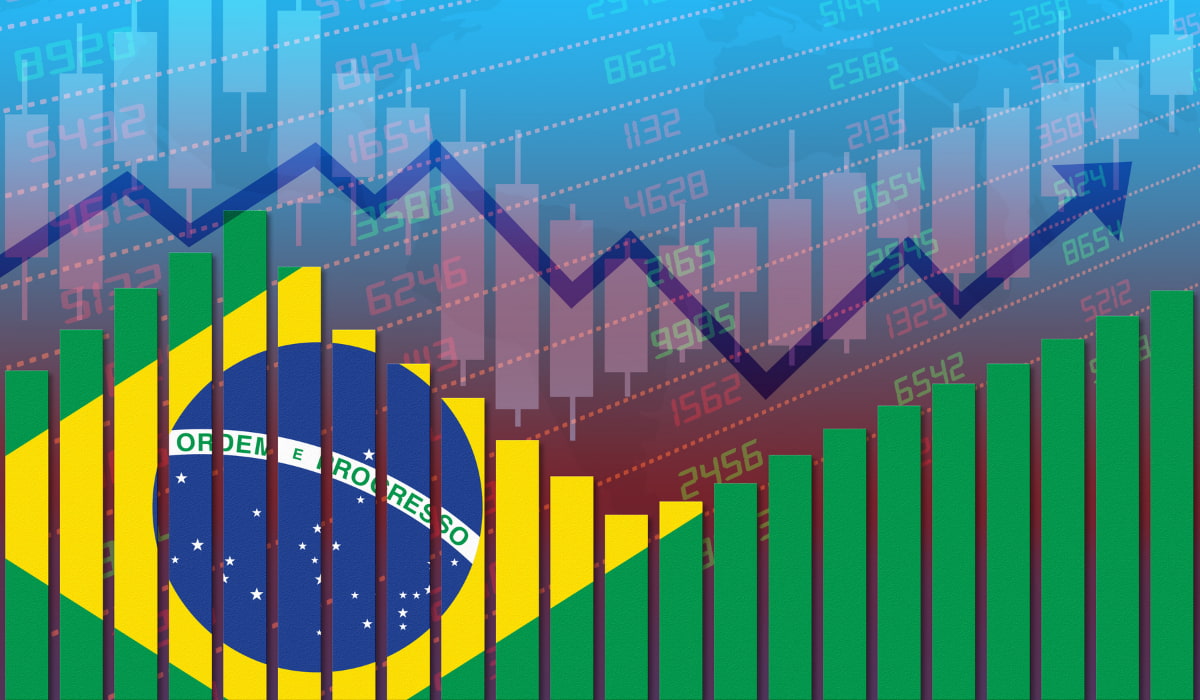A economia brasileira oscila frequentemente, principalmente após a pandemia da Covid-19 que assolou diversos países. Diante desse cenário, entender sobre o ramo econômico da nossa nação é essencial.
Por isso, bem-vindos ao Brasil Econômico, o maior portal sobre economia do país. A seguir, saiba o que encontrar em nosso site. Vem com a gente!

Economia no Brasil e no mundo: entenda como funciona
Em nosso website, você pode conhecer os principais setores da economia ao redor do mundo. entenda a diferença dos setores primário, secundário e terciário e descubra qual é o de maior impacto dentro de uma sociedade. Acesse Brasil Econômico: quais são os setores da economia e fique por dentro sobre os principais segmentos das atividades econômicas e como a economia do Brasil se encontra nos dias atuais.
Embora a situação atual do país não esteja entre as melhores, o Brasil já esteve entre as maiores economias a nível global. Em Brasil 6 economia do mundo: uma história, você vai ter acesso as principais informações sobre a economia brasileira ao longo dos anos. Além disso, você também vai descobrir quais são os países que lideram o ranking da economia mundial.
Você já ouviu falar sobre economia colaborativa? Na verdade, esse modelo econômico é mais comum do que a maioria das pessoas pensam. No Brasil, a economia colaborativa já está inserida na sociedade. Se você quer saber mais sobre, acesse Quem se beneficia com a economia colaborativa: conheça as principais vantagens e entenda o porquê desse tipo de economia ser tão essencial nos dias de hoje.
Todavia, a economia é bastante dinâmica. Conheça as indústrias promissoras no Brasil, as quais têm tudo para se consolidar no país e ser um sucesso nos próximos anos. Entenda como a internet impacta diretamente no futuro das empresas, principalmente diante de um cenário pandêmico – o qual estivemos enfrentando nos últimos anos. Leia mais em O futuro das empresas no Brasil: onde acontecerá um forte impacto?.
Em Salário-mínimo no Brasil: qual a atual situação financeira do brasileiro?, você vai entender sobre o que é poder de compra e o que isso tem a ver com o salário-mínimo do país. Ademais, você tem acesso aos países com os melhores salários-mínimos de 2022.
A importância sobre entender de economia: por que estudar?
O estudo da economia é essencial para o compreendimento sobre a relação de distribuição de bens e serviços. Embora pareça ser fácil, os modelos econômicos são bem mais complexos do que imaginamos.
Por meio do estudo, é possível nortear a utilização dos recursos limitados a fim de suprir as necessidades de demandas ilimitadas, incluindo o dinheiro, o tempo e a energia, como disse o professor do Curso CPT Fundamentos da Economia, Hélvio Tadeu Cury Prazeres.